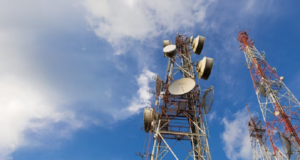The True Meaning and Interesting History Behind Hawaii’s Iconic State Motto
When Hawaii officially became a U.S. state in 1959, the Hawaiian phrase “Ua Mau ke Ea o ka ʻĀina i ka Pono” was adopted as the new state’s official motto. In English, this now-iconic phrase translates to “The life of the land is perpetuated in hawaii state motto righteousness.”
This motto has its origins long before statehood, however, tracing back centuries in Native Hawaiian culture. The saying captures core Hawaiian values around sustaining life, the land, and community ethics that continue to inform laws and customs today.
Understanding the deeper meaning behind Hawaii’s motto sheds light on indigenous beliefs as well as contemporary issues like conservation and Native rights. The motto’s righteous message still carries weight regarding how Hawaii cares for its land and people.
Literal Translation Breaks Down Layers of Meaning
The state motto may only be eight words, but in those few words one finds tremendous significance. The phrase “Ua Mau ke Ea o ka ʻĀina i ka Pono” literally translates to:
- Ua Mau – “Has endured”
- ke Ea – “the life”
- o ka ʻĀina – “of the land”
- i ka Pono – “in righteousness”
Scholarly interpretations explain how each element works together to create an evocative expression of Hawaiian principles.
“It addresses the importance of living righteously with the land, not just taking a righteous position, but action, to perpetuate life,” said Hawaiian language professor Kiele Akana in an interview with Honolulu Magazine.
The key concept of “pono” in the motto is about righteousness, balance, and morality. It conveys an ethical code concerning respect for the land. The phrase connects virtuous living to sustaining life itself.
“In Hawaiian thinking and epistemology, land and life are one and cannot be separated,” explained cultural historian Lilikalā Kameʻelehiwa. “The health of one depends upon the health of the other.”
So Hawaii’s motto speaks to certain duties regarding protection of the natural world and traditional island lifestyle. The motto promotes continuity from generation to generation by making clear that fostering life perpetually depends on righteous harmony.
Mid-19th Century Leader hawaii state motto Established Enduring Phrase
Most evidence suggests King Kamehameha III originally coined Hawaii’s iconic motto phrase in the mid-1800s.
In 1840, the phrase appears in Hawaii’s constitutional laws drafted under Kamehameha III. Section 7 states “Ua Mau ke Ea o ka Aina i ka Pono” regarding governance code.
Then on July 31, 1843 Kamehameha III formally declared the motto in a speech at Lahaina, Maui. He addressed land rights after centuries of conquest. Indigenous Hawaiians lost access to land while wealthy foreigners gained ownership.
The King sought to remedy this injustice, proclaiming “The life of the land is perpetuated in righteousness” as his mission. He arranged land dividends enabling natives to claim property for subsistence living.
Historians view King Kamehameha III citing this phrase as him evoking Hawaiian cultural history. Well before western contact, his ancestor Kamehameha I likely uttered something similar when codifying Kanawai Mamalahoe, edicts protecting citizens’ rights.
Thus Hawaii’s enduring motto echoes back centuries. It expresses Hawaiian ideals around righteous living in balance with nature. These ethics have long guided Pacific island existence, starchly contrasting western notions of property at the time.
Why This Phrase Came to Represent the Aloha State
Jump forward one hundred years later and “Ua Mau ke Ea o ka ʻĀina i ka Pono” gets enshrined officially as Hawaii’s state motto upon admission to the Union.
Hawaii became the 50th star on the American flag in 1959 after over 60 years as a U.S. territory. Control largely passed from wealthy American planters and missionary descendants to Democrats. They dominated Hawaii’s post-statehood governance for decades.
Some historians argue Hawaii’s territorial motto “The Islands of Aloha” might have sufficed for statehood. But Hawaiian language and cultural revitalization was also underway midcentury.
The growing sovereignty movement questioned Hawaii’s annexation following the illegal 1893 overthrow of Queen Liliʻuokalani. So the territorial government made concessions by adopting Hawaiian cultural touchstones like the motto.
“Given the still vocal opposition to annexation, it would have been difficult not to acknowledge Hawaiian values,” said Stan Fujii, Professor of Public Policy at the University of Hawaii at Manoa.
This helps explain why Hawaii ultimately selected this revered phrase instead of an English option as it joined the union.
The motto’s righteous message, while hypocritically contradicted at times by leadership, appealed generally to Hawaii residents. Collectively it captured shared ideals around ethical coexistence – even amid ongoing struggles over power, identity, and rights.
How hawaii state motto Poetically Connect Virtue to Sustenance
More than just an official government creed, Hawaii’s state motto represents poetry to locals familiar with its history and language.
The Hawaiian phrase rhythmically pairs sustenance and morality as intertwined, employing alliteration and metaphor. As a line of Hawaiian verse, the motto fuses what other languages might divide across clauses.
“It’s precisely chosen, almost cryptic words containing profound cultural references,” Hawaiian studies professor Palani Vaughn explained. “The succinct phrasing reveals Native Hawaiian poetry as an esteemed oral tradition elevating wisdom itself to an artform.”
Additionally, the motto in Hawaiian employs plural modifiers indicating the land continually regenerates interconnected elements that nourish existence – water, flora, animals, etc.
So what sounds literally on the surface as “life” and “land” imply deeper indigenous meaning. These words invoke the AHupua‘a concept denoting watersheds running from mountain peaks to coral reefs.
“In this context, righteous living means comprehending that everything – rainfall, forests, streams, oceans – link in preserving balance,” emphasized Hawaiian historian David Malo.
Just a short eight-word motto, but one encompassing Indigenous Pacific Islanders’ profound worldview – illuminating ecology’s delicate harmony.
hawaii state motto Capture Core Essence of Native Identity
Beyond poetics, Hawaii’s motto distills Hawaiian nationalism into an essence statement – one carrying weight despite eras suppressing aspects of that identity.
“It centralizes key Hawaiian ethics, like aloha ‘āina or love of land, establishing this bond between righteousness and sustaining life through generations,” explained Dr. Jonathan Osorio, Dean of the Hawaiʻinuiākea School of Hawaiian Knowledge.
The phrase thus declares cultural values promoting continuity, prosperity, and devotion to place – reflected in traditions like growing staple foods or gathering plants for utilitarian and medicinal uses.
But the motto also reminds that lahui (nation) depends on just authority. As Kamehameha III exemplified when he cited the phrase amid working to amend unjust land seizure, leadership must enact pono.
Even as laws, institutions, economies transformed Hawaii over centuries, displacing Natives, the sovereign motto endured underground – awaiting rediscovery when preparedness returned to give it potential true realization separate from colonial powers claiming the phrase.
Motto Still Invoked Regarding Hawaiians’ Rights and the Aina
Today Hawaii’s motto represents not just official sloganeering but retains potency given present struggles in the isles.
Sovereignty proponents stress how the U.S. annexed Hawaii illegally, so its motto rings hollow absent indigenous self-determination. Yet they still invoke the phrase when citing broken commitments to steward what rightfully sustains Hawaiians – the ‘āina.
“We must look to Hawaii’s motto to guide us. But we only perpetuate life through righteousness when Hawaiians can practice traditional lifeways – taro farming, catching fish, building shelters without permits, etc. – unencumbered on lands our kingdom secured us previously,” explained Walter Ritte of the Hawaiian Sovereignty organization Ka Pakaukau.
Indigenous leaders cite living pono means enabling Hawaiians to honor ancestorial connections. So returning lands corporations enclose matters alongside preserving natural habitats and agriculture. Motto actualization involves fundamental restoration – materially and spiritually.
“Without lands to practice traditional knowledge, Hawaiians cannot transmit culture,” said former Kamehameha Schools trustee Oswald Stender. “So policies claiming to ‘perpetuate life righteously’ ring false. True righteousness would return enough acreage for independence.”
Beyond sovereignty issues, contemporary usage invokes the motto regarding environmentally sustainable development to preserve beauty and lifestyle. Rapid tourism and luxury building risk overrunning infrastructure and nature itself.
“The state motto reminds us of our higher responsibility hawaii state motto to care for this place – our keiki’s future,” implored Kauai County Councilmember Kaleihono Henderson recently when addressing land use proposals. “Let Hawaii show the world how to live pono through actions perpetuating life not destroying it.”
Laws & Movements Gradually Restore Commitments to State Motto
Cultural revitalization expands among Native Hawaiians given decades of local control enabling education and limited self-governance. Hawaiian language immersion schools grow as youth learn ancient lifeways.
Hawaiians pass policy benefiting communities in alignment with the motto. This includes establishing state laws like Hawaiʻi 2050 Sustainability Plan to protect natural resources and culture for future generations’ prosperity.
Fishponds have gained over 90 acres of restorations since 2005 – allowing nurturing of wildlife. And recent court rulings constrain tourist helicopters from disturbing sacred sites.
“We have far to go, but beginnings shine through Dark Ages,” expressed Senate Majority Leader J. Kalani English. “The state motto stands for hope. Our kūpuna [elders] persevered so Hawaiian destiny endures. We rise by uplifting true meaning of righteous continuity.”
While stopping short of major land redistribution furthering total independence, Hawaii increasingly fosters pono through various initiatives: renewable energy programs, homesteading assistance, tuition waivers affirming natives’ place-based education, and pardon boards recognizing unjust treatment.
Baby steps toward recognizing righteousness? The pace frustrates many. But given the still living memory of near eradication earlier last century, some now prepare to present native identity to an international stage someday.
Conclusion: Motto Teaches Righteous Progress Carries Hawaiian Legacy
The long suppressed phrase elevated to public office upon Hawaiian statehood contains centuries of island meaning. In eight Hawaiian words lies lengthy backstory – creation tales, voyaging history, oral traditions encoding ethics through sublime poetry.
Loss cannot erase such cultural treasures where safeguarded by steadfast memory. Like the land’s perpetual capacity to replenish life through natural cycles, Hawaiians endure through 172 years of text invoking moral continuity.
However slow justice proceeds from suppression nadir towards redemption heights, the return journey charts a course taking Hawaiians far. For the state motto set down by Kamehameha III, informed by his ancestor, crystallizes core Hawaiian spirit – one fostering balance between righteous human relations and the ever nourishing abundance of ‘āina that perpetually affirms Pacific traditions.
This heritage holds seeds planting futures even renunciation struggles to compost. But it often blooms in fallow ground until made fertile again. So Hawaii’s motto promises that subsisting lifeways – if perpetuated pono – will break concrete one day… in aloha.
 Living There
Living There




